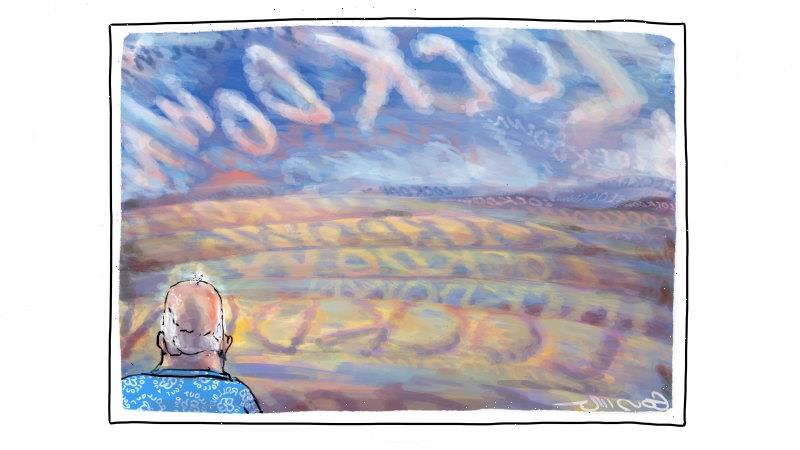For our free coronavirus pandemic coverage, learn more here.
Australia’s medical establishment failed to adequately counter misinformation about vaccines or rebuke academics who argued the country could eliminate COVID-19 indefinitely, two prominent public health leaders say.
Former deputy chief medical officer Nick Coatsworth, one of the government’s top advisers in the early phase of the pandemic, said authorities underestimated the influence of commentators and academics who advocated an indefinite zero-COVID strategy and denigrated the AstraZeneca vaccine – and deliberately chose not to call them out publicly.
Former deputy chief medical officer Nick Coatsworth.Credit:Alex Ellinghausen
“We always took the view in government, myself included, that this was a small group of people who didn’t have that much influence, and we would create more problems for ourselves if we started questioning academic freedom or asking people to stay in their swim lane,” Dr Coatsworth told The Sun-Herald and The Sunday Age.
“I actually think that was the wrong position to take. We should have been a lot firmer. We needed stronger voices out there. If I had my time again I think I would have been as forthright as I have in the last couple of weeks, [but] six months earlier.”
Dr Coatsworth, who is now executive director of medical services at Canberra Health Services, has recently used speeches, opinion pieces and social media to speak out against an indefinite “zero-COVID” approach and warn Australians must prepare for the virus to circulate as borders open.
He had suggested reopening at a vaccination rate of 50 per cent but called for the country to unite behind the 70 and 80 per cent targets modelled by the Doherty Institute and adopted by national cabinet.
“Nobody really understood how really problematic information that’s been circulating on social media has been for confidence in vaccines generally.”
Dr Coatsworth said he regretted underestimating the influence of zero-COVID advocates in the academy, whose commentary has shaped the discourse on COVID-19 management in Australia.
“There’s a very strong network in Australian academia that is pro COVID-zero,” he said. “There’s some very influential policy people, particularly down in Victoria, who have that particular view.
“Extreme zero-COVID views look good, but they can have a fair few negative consequences that are difficult to count.”
Long-serving former Health Department secretary Jane Halton – who also sat on the government’s National COVID-19 Commission Advisory Board – did not agree with Dr Coatsworth about COVID-zero advocates but admitted the public health community had failed to counter misinformation about vaccines, especially AstraZeneca, and it was possibly too late to reverse the damage.
“I think nobody really understood how really problematic information that’s been circulating on social media – unchecked and unchallenged – has been for confidence in vaccines generally, and in AstraZeneca in particular,” Dr Halton told The Sun-Herald and The Sunday Age.
“We’ve all been out advocating vaccination. But I don’t think we’ve said enough about why people shouldn’t believe a lot of what they read. We shouldn’t assume that people understand all of these issues.”
Dr Halton said: “I don’t believe things are ever too late but once a lack of confidence sets in with AstraZeneca, it is very hard to counter it. There’s a big job now [for] all of us to try and counter what is potentially a real problem for us as we get to the back end of the vaccine rollout.”
A spokesperson for the federal health department said there had been a consistent message since the start of the pandemic that Australians should get their information from credible sources and “most Australians have heeded that message”.
“There will always be debate and diversity of opinion,” the spokesperson said. “Our focus has been on engaging health academics across the country … to share the latest information and advice and debate the diverse range of views in the academic community.
“This has helped to ensure debate is informed, as much as possible. While there is a diversity of opinion including amongst the medical profession the advice that has guided the government has led to Australia having one of the lowest death rates from COVID.
“Health spokespeople, including the Chief Medical Officer, Deputies and the Chief Nursing and Midwifery Officer continue to engage media and social media to tell Australians the latest information and encourage Australians to only rely on trusted information sources.”
Stay across the most crucial developments related to the pandemic with the Coronavirus Update. Sign up to receive the weekly newsletter.
Most Viewed in Politics
From our partners
Source: Read Full Article


